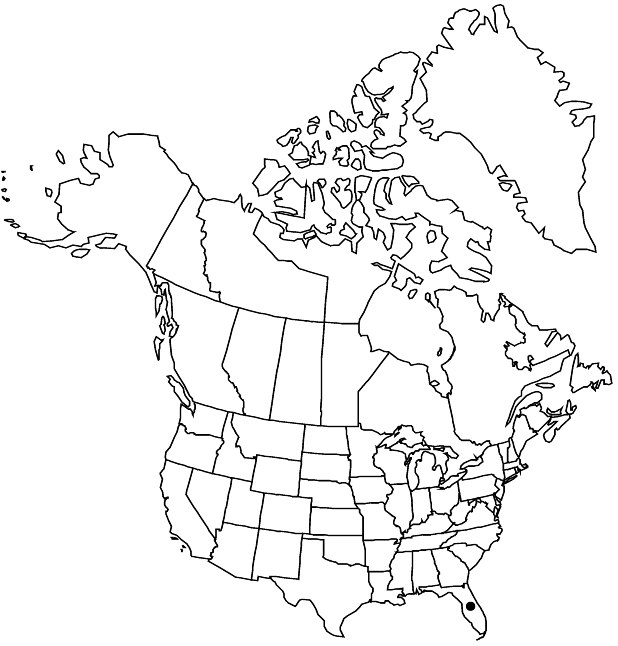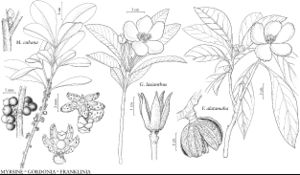Difference between revisions of "Myrsine cubana"
Ann. Sci. Nat., Bot., sér. 2, 16: 86. 1841,.
imported>Volume Importer |
imported>Volume Importer |
||
| Line 50: | Line 50: | ||
|publication year= | |publication year= | ||
|special status= | |special status= | ||
| − | |source xml=https:// | + | |source xml=https://bitbucket.org/aafc-mbb/fna-data-curation/src/2e0870ddd59836b60bcf96646a41e87ea5a5943a/coarse_grained_fna_xml/V8/V8_643.xml |
|genus=Myrsine | |genus=Myrsine | ||
|species=Myrsine cubana | |species=Myrsine cubana | ||
Latest revision as of 22:45, 5 November 2020
Shrubs or trees, to 15 m; branchlets glabrous. Leaves: petiole 4–7 mm, glabrous; blade 3.9–13.2 × 2.4–5.6 cm, surfaces punctate. Inflorescences: staminate 5–9-flowered, pistillate 3–7-flowered; peduncle 1.3–4.3 × 1.2–2.2 mm. Pedicels: 0.4–1.1 mm in staminate inflorescences, 1–1.4 mm in pistillate inflorescences, glabrous. Staminate flowers: sepals 0.7–1 mm, margins entire, densely glandular-ciliate, apex acute, surface punctate, glabrous; petals lanceolate, 2.3–2.5 mm, margins entire, densely glandular-granulose, apex acute, surface punctate, glabrous; filaments rudimentary; anthers attached at apex of corolla tube, oblong, apex obtuse, epunctate dorsally; pistillode glabrous. Pistillate flowers similar to staminate except sepals 1–1.4 mm; petals 2.5–2.7 mm; staminodes 2.5–2.8 mm; filaments rudimentary; antherodes lanceolate, apex acuminate, apiculate; pistil punctate, glabrous; ovules 3–9. Drupes green to black, 3.5–4.5 mm diam., punctate.
Phenology: Flowering Oct–Apr; fruiting year-round.
Habitat: Mangrove formations
Elevation: 0-10 m
Distribution

Fla., West Indies (Bahamas, Cayman Islands, Cuba), Central America.
Discussion
J. M. Ricketson and J. J. Pipoly (1997) discussed the correct application of the name Myrsine cubana. The widely used name M. floridana A. de Candolle is superfluous.
Myrsine cubana has sometimes been confused with M. guyanensis (Aublet) Kuntze, a South American species found in Brazil, the Guianas, and eastern Venezuela; see J. J. Pipoly (1992, 1992b) for the diagnostic features separating these taxa. In addition, M. cubana has a confused nomenclatural history; see J. M. Ricketson and Pipoly (1997) for a discussion.
Selected References
None.
